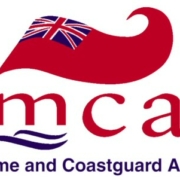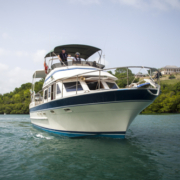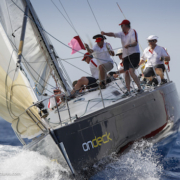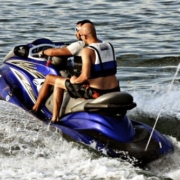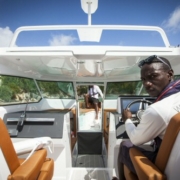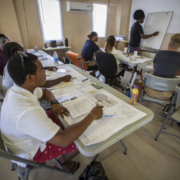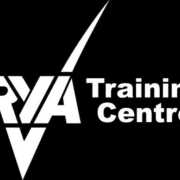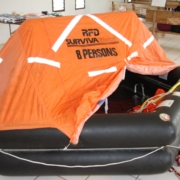Jetski – PWC – Personal Watercraft
/in Caribbean and Boatmaster /by ColinThis is a 2 day course and meets the requirements of the local licensing requirements for Antigua and Barbuda - please view them here.
Launching, handling and recovery skills, passage planning and decision making, high and low speed riding skills, essential safety information, collision avoidance and orientation at sea.
Additionally it covers the local regulations for safe operation by ADOMS.
Safe operational practice
- At least 15 metres (50 feet) from another craft underway.
- Not within 50 metres (160 feet) of an anchored or moored vessel, a person in the water, or a jetty or wharf.
- Freestyling or wave/wake jumping is not allowed within 30 metres (100 feet) of another PWC or not within 50 metres (160 feet) of another vessel, or person in the water.
- Jet skis should not exceed 5 knots when they are closer than 75 metres (250 feet) from the shore.
Warning
If a jet ski is reported to be not operating to the above safe distance and speed requirements the ADOMS licence will be withdrawn
$245usd pp. Please click on the 'Training Dates & Booking' button on the right to check available dates.
Boatmaster 3
/in Caribbean and Boatmaster /by ColinBoatmaster 3 - $550usd pp
Must be at least 18 years old and have 3 months service on a vessel similar to the one they intend to serve on. Limit of usage is 3 miles from a safe haven and is generally for smaller open power vessels doing inshore charters.
This is a 2 day course with a mixture of practical and theoretical content usually conducted on your own vessel.
Additional courses needed.
VHF Radio if used on board
PST Sea survival
First Aid
The ADOMS application form and check list can be found here.
Please click on the 'Training Dates & Booking' button on the right to check available dates.
Boatmaster 1 & 2
/in Caribbean and Boatmaster /by ColinBackground
The Boatmaster qualifications are increasingly becoming the standard for those wanting to work on Small Commercial Vessels in the Caribbean. These are known as SCV's and are typically less than 24m in length. The IMO [International Maritime Organisation] developed a set of recommendations some years ago for training of captains in the Caribbean. This is now widely accepted by most Caribbean countries.
In Antigua & Barbuda certification is governed by ADOMS [Antigua Barbuda Department of Marine Services].
A circular concerning these ADOMS requirements can be found here.
After or before completion of the necessary courses you will need to have a valid medical certificate from an approved doctor in Antigua . - their details can be accessed here.
There are 3 levels of Boatmaster and the level you go for will depend partly on your experience but also the waters you plan to operate the vessel.
Boatmaster 1
Candidates must be at least 21 years old and have 12 months service on SCV's and allows passages up to 20 mile off shore or more with approval and proof of passages.
Boatmaster 2
Must be at least 20 years of age and have evidence of at least 6 months service on SVC's including time on a vessel similar to the one that they will be operating on. Limit of usage is 3 miles offshore.
There are a number of courses that will be necessary for anyone seeking an examination directly with ADOMS.
1. Boatmaster Theory for Boatmaster 1 and 2 $595usd pp
This covers all the aspects required by the code. The course is not mandatory but it is highly recommended and will mean that examination candidates do not have to be tested on all of the theory by ADOMS. It will be around 35 hours of classroom based training with an exam at the end.
A certificate with photo ID will be provided on successful completion.
2. Boatmaster Practical & Exam $495usd pp
This preparation course aims to prepare and work on practical elements of the syllabus that may be covered in the examination. Specifically practical navigation, safety and man overboard procedures, and general boat handling.
The preparation would be a minimum of 2 days depending on needs.
It will be tailored to the needs of the specific individuals and for that reason we would be looking to take a maximum of 5 candidates over a 2 day period.
This would generally be 'own boat' training and be the same vessel you would be examined on . Assessment is done over during the practical.
3. SRC/VHF Radio [If used on board or as required by ADOMS].
4. Full STCW 10 Basic Safety Training
PST -Sea survival
First Aid
PSA
PSSR
Fire Prevention and Fighting.
The ADOMS application form and check list can be found here.
Please click on the 'Training Dates & Booking' button on the right to check available dates.
PPR Professional Practices & Responsibilities and Commercial Endorsements
/in RYA Theory Courses /by ColinThis is an online course that can be booked via Ondeck and is essential for anyone looking to commercially endorse their RYA license
Each year approximately 4,500 people apply to the RYA for a commercial endorsement in order to use their RYA qualifications professionally as skipper or crew. You could be doing anything from delivering a new 35’ yacht or driving a workboat with lifting and towing gear, to running a superyacht in the Med. Whatever your job is on board, in the commercial world you are a professional seafarer. As such, you are no different from the captain of a cruise liner – you have a duty of care to crew, passengers, and other water users, and you will be held to account if things go wrong.
The course is broken down into four modules:
- Commercial environment - how you fit into the professional maritime world.
- People – the importance of correct manning, keeping your skills up to date and the safe management of commercial vessels.
- Vessel – the compulsory carriage and maintenance of safety equipment and how to create and implement risk control and operating procedures.
- Purpose – making sure your vessel is suitable and legal for the work you are carrying out, your obligations in protecting the environment, appropriate planning and situational awareness.
Please click here to see the progression and recommended path for RYA theory courses.
$80usd pp - online
RYA/World Sailing Offshore Personal Survival
/in RYA Theory Courses, Theory Courses /by ColinThis is a 2 day course comprising the one day RYA Sea Survival course and one day of training in seamanship and emergencies, including heavy weather seamanship, weather forecasting, fire fighting and man overboard recovery
At the end of the course you will have a good knowledge of the safety equipment carried on small boats and the seamanship techniques needed to survive at sea in heavy weather.
The certificate awarded conforms with the eligibility requirements of section 6.01 of the World Sailing Special Regulations for category 0, 1 and some category 2 offshore races.
These regulations require a percentage of the crew to have taken personal survival training. Full details of the Special Regulations can be found in the World Sailing website https://www.sailing.org/


